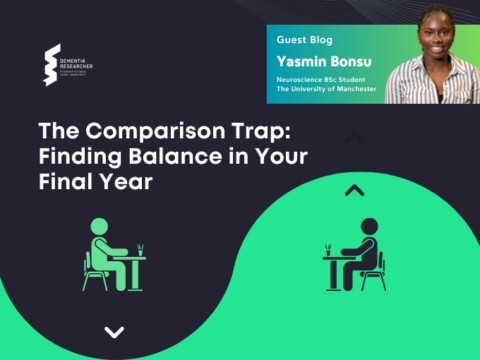We’ve all heard of imposter syndrome. It’s something that the majority of us experience during our career. That feeling of doubting our accomplishments or competency and the fear of being exposed as a fraud. The Google definition of imposter syndrome is:
“The condition of feeling anxious and not experiencing success internally, despite being high-performing in external, objective ways. This condition often results in people feeling like “a fraud” or “a phony” and doubting their abilities.”
It’s a totally unjustified feeling as it is commonly reported by successful, high functioning professionals in their chosen career path. I’m convinced it’s a by product of the Dunning Kruger effect which is a psychological phenomenon whereby people with limited competence in a given field overestimate their expertise. It’s quite commonly seen on Twitter (or X as it is now). There is, however, another end to this phenomenon whereby apparent experts in the field underestimate their knowledge. The more you know, the more you realise you don’t know because you have discovered just how much information is out there.
It’s important to know that if you feel something like this you are not alone. Most people in your work environment would have felt the same and you must remember that you are good at what you do. Nobody would employ you if you were terrible at it. This takes me to the main theme of my blog this month; how you judge the progress you make in your career?
When I finished my PhD, I moved on to a postdoc at the University of Manchester. I left the University of Huddersfield; a place that had been my academic home throughout my undergraduate and postgraduate studies. I’d had a very successful PhD, publishing a few papers, and attending conferences across the globe. I was very fortunate to have had an excellent supervisor, supportive peers and a project that had really taken off. This was a great asset, but it would inadvertently also become a bit of an adversary.
This might seem like a strange statement. How can a successful PhD become an opposition? The answer lied in my transition to the work in my first postdoc. I went from a fast-paced project in a field where a few publications from a PhD is common to something much more attritional. The work was biologically complex and, as a result, took a lot longer. Papers were less frequent, and I had carried with me the expectation that things would continue at the pace of my PhD. This left me in quite a tricky spot.
Throughout my PhD I had heard the phrase ‘publish or perish’. It’s not a philosophy my supervisor ever imparted on me but that didn’t stop me frequently picking up on the idea that you must publish at an arbitrary frequency to be considered a successful researcher. There is some truth to this too but, thankfully, increasing numbers of academics are holding more value to the quality of your work and your papers rather than the frequency.
The problem for me was I didn’t think that way. I judged myself on publishing papers. It’s not necessarily a bad motivator. It’s always good to keep future publications in mind but I got obsessed. Even worse, I wasn’t judging my progress based on personal milestones. I was judging myself against what others at a similar career stage were doing and that is a toxic habit to get into.
If I want to get one message across in this blog, then it is this: don’t judge yourself against where someone else is. Judge yourself against where you were 12 months ago. We are all on our own personal journey and your particular set of circumstances are unique to you. I can speak from experience when I say comparing your progress to what someone else is doing does nothing but make you miserable. On top of that, it blinds you to the steps forward you are taking because you’re so busy watching others that you don’t notice yourself moving in the right direction. You overlook the valuable growth you have made and experiences you have had and can easily become demotivated. Setting your benchmarks to focus on personal improvement ensures a healthier perspective. In turn, this fosters critical factors to your development; self-compassion and motivation. Additionally, it promotes you to stop and acknowledge the achievements you have made and encourages consistency and perseverance. This will always create a positive outcome for you in the form of sustainable, long-term success.
I remember about 2 years into my postdoc I was still feeling demotivated because I couldn’t look past the achievement of others. My PhD supervisor came to visit me so we could finish some work and I talked to him about it. He said something simple but very impactful to me: “You are doing the work. The papers will come. They always do.”
And that’s the key thing to remember. Everyone’s journey moves at a different pace but, if you are putting in the work, you will always get the outcomes you want. When I started in Manchester at the end of 2016 my goal was to publish at least 5 papers. That was a good goal to have. My mistake was expecting those 5 to come at the same pace as the papers from my PhD and the same pace as the papers from people I was comparing myself to despite them doing vastly different work. I am proud to say my time in Manchester got me my 5 papers. In fact, it got me 8 with 2 more on the way but it wasn’t until 4 or 5 years later that I got past that goal. The message… trust the process, do the work and judge you against where you were 12 months ago. Keep that in mind and you cannot fail to push forwards.

Dr Sam Moxon
Author
Dr Sam Moxon is a Research Fellow at the University of Birmingham. His expertise falls on the interface between biology and engineering. His PhD focussed on regenerative medicine and he now works on trying to develop 3D bioprinting techniques with human stem cells, so that we better understand and treat degenerative diseases. Outside of the lab he hikes through the Lake District and is an expert on all things Disney.

 Print This Post
Print This Post




